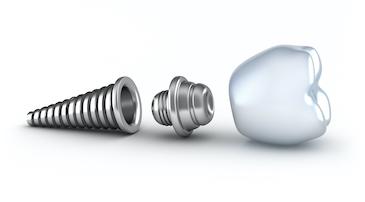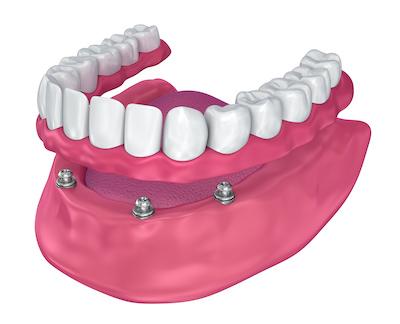
Most dentists consider dental implants the gold standard in tooth replacement. They are ideal for patients seeking a long-term, hassle-free solution to tooth loss.
Dental implants are like natural teeth, replacing your tooth and its root. Additionally, they don’t require special care to remain healthy and viable.
If you’re looking for the most natural-looking tooth replacement option available today, we urge you to consider dental implants in Vallejo, CA.
Also, continue reading through our ultimate guide to dental implants to learn more about this innovative tooth replacement option.
Understanding Dental Implants in Vallejo, CA
Unlike dentures or partial dentures, dental implants are fixed to the jaw with titanium replacement roots. These roots are biocompatible with bone, meaning they can integrate like natural tooth roots.
Their stability makes them a patient and dentist favorite. You may eventually forget which tooth is an implant!
Full anatomy tooth replacement—root and crown—is the best long-term course.
Dental Implants vs. Alternative Options
Let’s compare the benefits and drawbacks of the various tooth replacement options.
Dental Implants vs. Dentures
Dentures are gum-colored plates of restoration teeth that sit over the gum, relying on suction, gravity, and adhesives for support.
Partial dentures are restoration teeth fixed to an oral appliance. They fit around the remaining teeth to fill in gaps. Partials need special clips for added support.
- Dentures are a tried-and-true solution to tooth loss but have many drawbacks compared to implants.
- Dentures loosen over time and need relining.
- Dentures may rock or tilt when you are chewing or speaking.
- Dentures need replacing every decade or so.
- Dentures do not promote jawbone health.
Dental Implants vs. Dental Bridges
A dental bridge is one or two teeth situated between dental crowns. Your Vallejo dentist uses the crowns to cap healthy teeth, forcing the bridge to close the gap in your smile.
The dental bridge is a practical solution to tooth loss, but there are a few drawbacks.
- A dental bridge requires added oral hygiene steps, including a floss threader, for best results.
- A dental bridge should be changed every decade or so.
- A dental bridge requires altering adjacent teeth for crowning.
- A dental bridge does not promote jawbone health.
How Long Do Dental Implants Last?
Dental implants can last decades and even your lifetime, unlike other tooth replacement options. Even if the crown or prosthetic needs replacing in the future, the supporting implant should still be viable.
However, it would be best to take care of your implants to promote this longevity. Fortunately, dental implant care is simple!
- Brush your teeth (and implants) at least twice daily.
- Floss your teeth (and implants) at least once daily.
- Visit your dentist every six months for checkups and teeth cleanings.
- Report oral health changes to our dental team as soon as possible.
- Talk to us if you suspect bruxism (teeth grinding).
- Wear a mouthguard if you play sports.
Dental implants are so much like natural teeth that we recommend the same care even if you don’t have implants!
The Dental Implant Process and Recovery
Dental implant recovery is straightforward. You may notice mild discomfort and swelling for the first week following implant surgery, but this is treated easily with a store-bought pain reliever. Abutment attachment and tooth or prosthetic connection are not painful. If you’re concerned, you can talk to the dentist about sedation dentistry in Vallejo.
Depending on the patient, the dental implant process, completed in phases, can take five months or longer.
Step One—Your implant evaluation includes an assessment of candidacy and a conversation with the dentist. If you proceed with treatment, we start implant preparations, which include impressions, x-rays, and more.
Step Two—On implant surgery day, your dentist surgically places titanium posts into the jawbone for integration. Integration can take three months or longer.
Step Three—After integration, your dentist attaches a crown, bridge, or denture to the implants with an abutment. It takes approximately four to six implants on average to secure a denture to the jaw.
Sedation Dentistry Options
We use powerful local anesthesia to numb the treatment site, but if you’re concerned or feel anxious, we have sedation options to see you through.
Nitrous Oxide—A safe gas delivered through a nose mask. Nitrous allows you to get treatment but leaves you feeling tranquil and detached. The effects wear off immediately after mask removal.
Oral Sedation—A pill taken before treatment that causes you to forget much of the procedure. This sedation method means you’ll need a ride home!
Candidates for Dental Implants
Your dentist determines your candidacy during your initial consultation. You may be an immediate candidate or require pretreatments for best results. Pretreatments may include an extraction (for implant dentures or bridges) or a dental cleaning.
Some patients opt for teeth whitening treatment before implant placement to choose a lighter crown or prosthetic tooth color.
How Much Do Dental Implants Cost in Vallejo, CA?
Dental implant costs vary for several reasons, including the number of implants, complexity of placement, necessary pretreatments, and single implant compared with prosthetics.
Your dentist will talk to you about the costs during your initial consultation. Your dental implant exam gives us a clear idea of the costs.
Contact Your Dentist Near Vallejo, CA
Contact our dental office today if you have questions about tooth replacement, including dental implants. Additionally, if you’re ready to schedule your consultation with the dental implant dentist, a team member is standing by to get you started.

